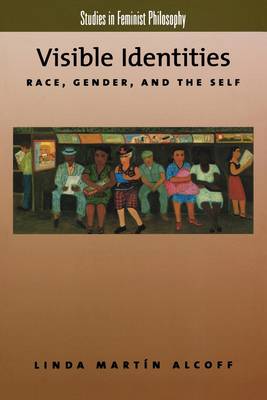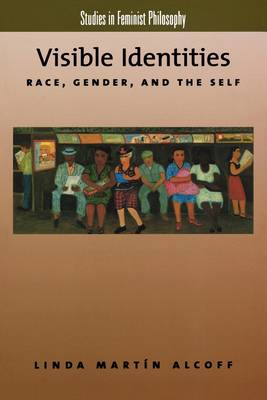
Door een staking bij bpost kan je online bestelling op dit moment iets langer onderweg zijn dan voorzien. Dringend iets nodig? Onze winkels ontvangen jou met open armen!
- Afhalen na 1 uur in een winkel met voorraad
- Gratis thuislevering in België vanaf € 30
- Ruim aanbod met 7 miljoen producten
Door een staking bij bpost kan je online bestelling op dit moment iets langer onderweg zijn dan voorzien. Dringend iets nodig? Onze winkels ontvangen jou met open armen!
- Afhalen na 1 uur in een winkel met voorraad
- Gratis thuislevering in België vanaf € 30
- Ruim aanbod met 7 miljoen producten
Zoeken
Omschrijving
In the heated debates over identity politics, few theorists have looked carefully at the conceptualizations of identity assumed by all sides. Visible Identities fills this gap. Drawing on both philosophical sources as well as theories and empirical studies in the social sciences, Martín Alcoff makes a strong case that identities are not like special interests, nor are they doomed to oppositional politics, nor do they inevitably lead to conformism, essentialism, or reductive approaches to judging others. Identities are historical formations and their political implications are open to interpretation. But identities such as race and gender also have a powerful visual and material aspect that eliminativists and social constructionists often underestimate. Visible Identities offers a careful analysis of the political and philosophical worries about identity and argues that these worries are neither supported by the empirical data nor grounded in realistic understandings of what identities are. Martín Alcoff develops a more realistic characterization of identity in general through combining phenomenological approaches to embodiment with hermeneutic concepts of the interpretive horizon. Besides addressing the general contours of social identity, Martín Alcoff develops an account of the material infrastructure of gendered identity, compares and contrasts gender identities with racialized ones, and explores the experiential aspects of racial subjectivity for both whites and non-whites. In several chapters she looks specifically at Latino identity as well, including its relationship to concepts of race, the specific forms of anti-Latino racism, and the politics of mestizo or hybrid identity.
Specificaties
Betrokkenen
- Auteur(s):
- Uitgeverij:
Inhoud
- Aantal bladzijden:
- 344
- Taal:
- Engels
- Reeks:
Eigenschappen
- Productcode (EAN):
- 9780195137354
- Verschijningsdatum:
- 22/12/2005
- Uitvoering:
- Paperback
- Formaat:
- Trade paperback (VS)
- Afmetingen:
- 167 mm x 234 mm
- Gewicht:
- 489 g

Alleen bij Standaard Boekhandel
+ 186 punten op je klantenkaart van Standaard Boekhandel
Beoordelingen
We publiceren alleen reviews die voldoen aan de voorwaarden voor reviews. Bekijk onze voorwaarden voor reviews.











